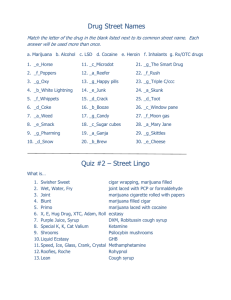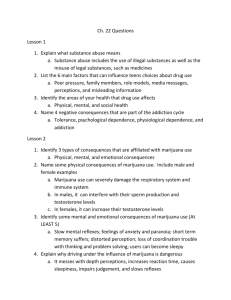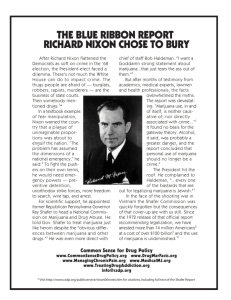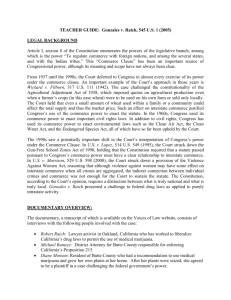The Case: Gonzales v. Raich Commerce Clause: Article I, Section 8
advertisement
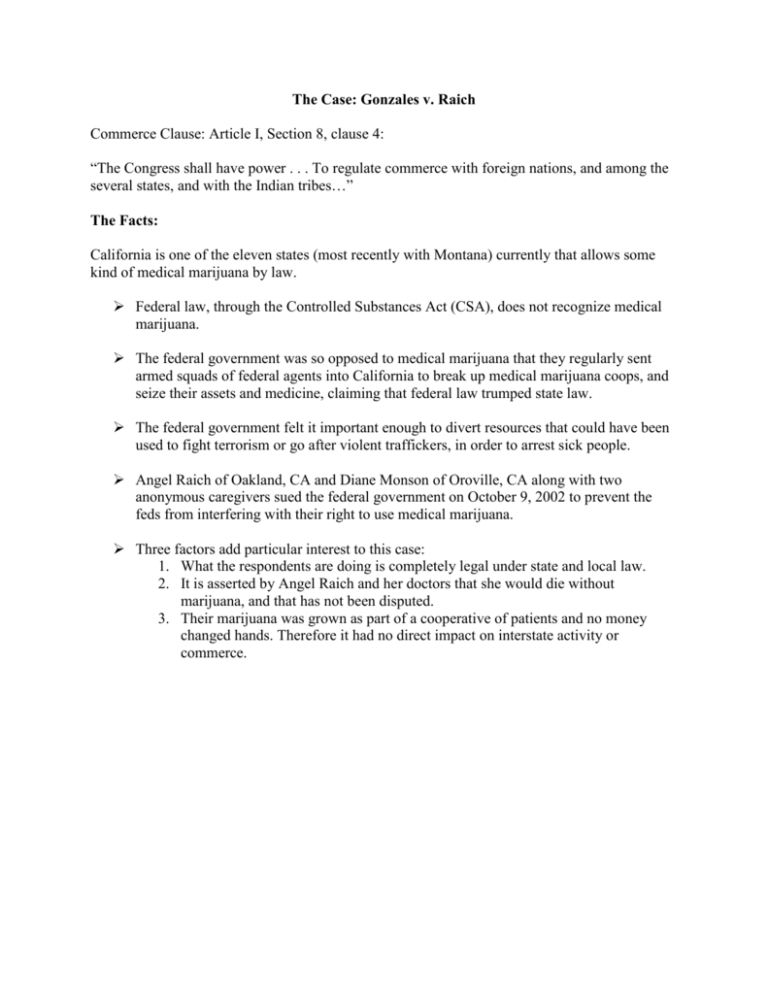
The Case: Gonzales v. Raich Commerce Clause: Article I, Section 8, clause 4: “The Congress shall have power . . . To regulate commerce with foreign nations, and among the several states, and with the Indian tribes…” The Facts: California is one of the eleven states (most recently with Montana) currently that allows some kind of medical marijuana by law. Federal law, through the Controlled Substances Act (CSA), does not recognize medical marijuana. The federal government was so opposed to medical marijuana that they regularly sent armed squads of federal agents into California to break up medical marijuana coops, and seize their assets and medicine, claiming that federal law trumped state law. The federal government felt it important enough to divert resources that could have been used to fight terrorism or go after violent traffickers, in order to arrest sick people. Angel Raich of Oakland, CA and Diane Monson of Oroville, CA along with two anonymous caregivers sued the federal government on October 9, 2002 to prevent the feds from interfering with their right to use medical marijuana. Three factors add particular interest to this case: 1. What the respondents are doing is completely legal under state and local law. 2. It is asserted by Angel Raich and her doctors that she would die without marijuana, and that has not been disputed. 3. Their marijuana was grown as part of a cooperative of patients and no money changed hands. Therefore it had no direct impact on interstate activity or commerce. Oyez.org Facts of the Case: In 1996 California voters passed the Compassionate Use Act, legalizing marijuana for medical use. California's law conflicted with the federal Controlled Substances Act (CSA), which banned possession of marijuana. After the Drug Enforcement Administration (DEA) seized doctorprescribed marijuana from a patient's home, a group of medical marijuana users sued the DEA and U.S. Attorney General John Ashcroft in federal district court. The medical marijuana users argued the Controlled Substances Act - which Congress passed using its constitutional power to regulate interstate commerce - exceeded Congress' commerce clause power. The district court ruled against the group. The Ninth Circuit Court of Appeals reversed and ruled the CSA unconstitutional as it applied to intrastate (within a state) medical marijuana use. Relying on two U.S. Supreme Court decisions that narrowed Congress' commerce clause power - U.S. v. Lopez (1995) and U.S. v. Morrison (2000) - the Ninth Circuit ruled using medical marijuana did not "substantially affect" interstate commerce and therefore could not be regulated by Congress. Constitutional Question: Does the Controlled Substances Act (21 U.S.C. 801) exceed Congress' power under the commerce clause as applied to the intrastate cultivation and possession of marijuana for medical use?

![[H1]Researching Society with MicroCase Online](http://s3.studylib.net/store/data/007737973_2-9d35b9e42208c660471ccaa373bd3b78-300x300.png)
